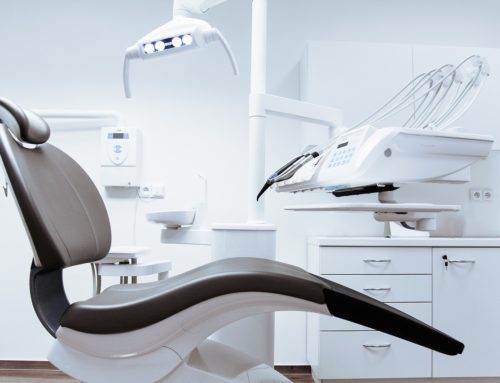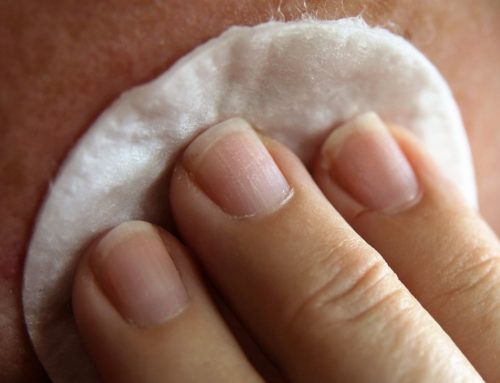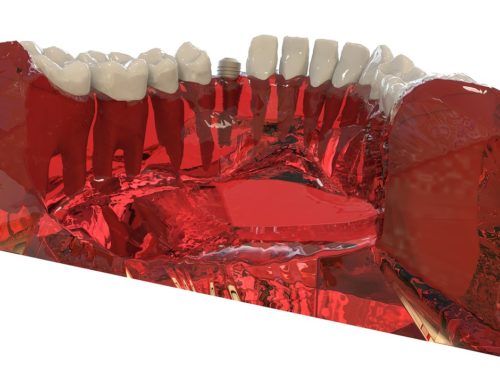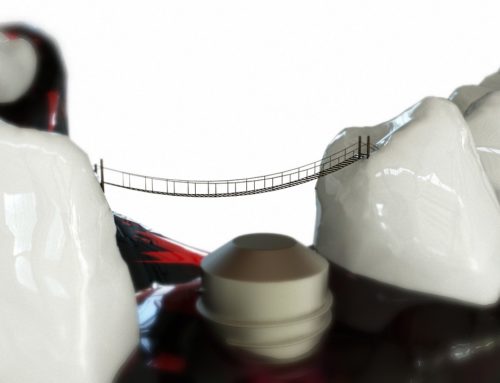People with dentures may wonder if they should take them out at night. Given the many benefits of wearing dentures during the day, wouldn’t it also make sense to wear them at night too?
While an understandable sentiment, it is important to be aware that there are serious downsides, even risks to wearing dentures at night. What are they?
Pressure on the Gums: Keeping dentures in at night will increase pressure on your gums and the bony ridges beneath them. Such pressure causes and accelerates resorption, the process by which there is a gradual decrease in bone volume and density in the mouth.
If dentures are worn 24 hours-a-day, resorption and bone loss will be accelerated. One of the consequences of bone loss in the mouth is inadequate support for dentures, and they will become loose and fall out more easily. Another consequence of resorption and bone loss is less support for cheeks and lips, which may cause changes (sometimes dramatic) in facial appearance.
Higher Risk of Infection: If dentures are not cared for properly, their undersurfaces are at greater risk of becoming breeding grounds for oral bacteria and fungi, leading to odors, irritation and disease.
For instance, wearing dentures continually, and especially overnight when salivary flow diminishes, may result in denture stomatitis, affecting the tissues under dentures. Denture stomatitis typically occurs under dentures covering the palate, which becomes reddened, inflamed and infected with yeast. That condition may be accompanied by angular cheilitis, a cracking at the corners of the mouth and creating another possible source of yeast infection.
The dangers of leaving dentures in the mouth for extended periods are especially acute for the elderly. A recent study of elderly nursing home residents found that seniors who kept their dentures in overnight as they slept were at much greater risk for incidences of pneumonia in comparison to those who took their dentures out. The study noted that aspiration (breathing) in elderly people is a significant means of moving pneumonia-causing bacteria from the mouth into the lungs.
Alexandria, Va., USA – Poor oral health and hygiene are increasingly recognized as major risk factors for pneumonia among the elderly. To identify modifiable oral health-related risk factors, lead researcher Toshimitsu Iinuma, Nihon University School of Dentistry, Japan, and a team of researchers prospectively investigated associations between a constellation of oral health behaviors and incidences of pneumonia in the community-living of elders 85 years of age or older. This study, titled “Denture Wearing During Sleep Doubles the Risk of Pneumonia in Very Elderly,” has been published by the International and American Associations for Dental Research (IADR/AADR in the OnlineFirst portion of the Journal of Dental Research (JDR).
At baseline, 524 randomly selected seniors (228 males, 296 females, average age was 87.8 years old) were examined for oral health status and oral hygiene behaviors as well as medical assessment, including blood chemistry analysis, and followed up annually until first hospitalization for or death from pneumonia. Over a three-year follow-up period, 48 events associated with pneumonia were identified (20 deaths and 28 acute hospitalizations). Among 453 denture wearers, 186 (40.8%) who wore their dentures during sleep, were at higher risk for pneumonia than those who removed their dentures at night.
Your Gums Need a Chance to Rest: Taking dentures out before going to bed gives the gums and other denture-bearing tissues a chance to rest, as well as enjoy beneficial exposure to antibacterial agents, which are naturally present in saliva.
I will leave the methods for taking care of dentures for another post. If you are a denture wearer and are concerned after reading these comments, please visit my Bala Cynwyd office. Perhaps dental implants would be right for you, but we can discuss that and other things in person.
Take the Next Step
Want to learn if a Dental Implants is right for you? Schedule a consultation at Dr. Farole’s Facial Cosmetic Surgery Center in Bala Cynwyd, PA by giving us a call at (610) 668-3300 today.
Sources
Dear Doctor






